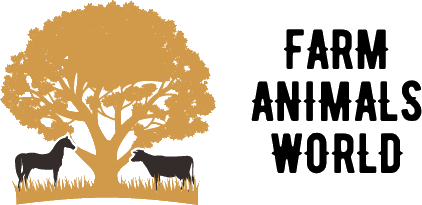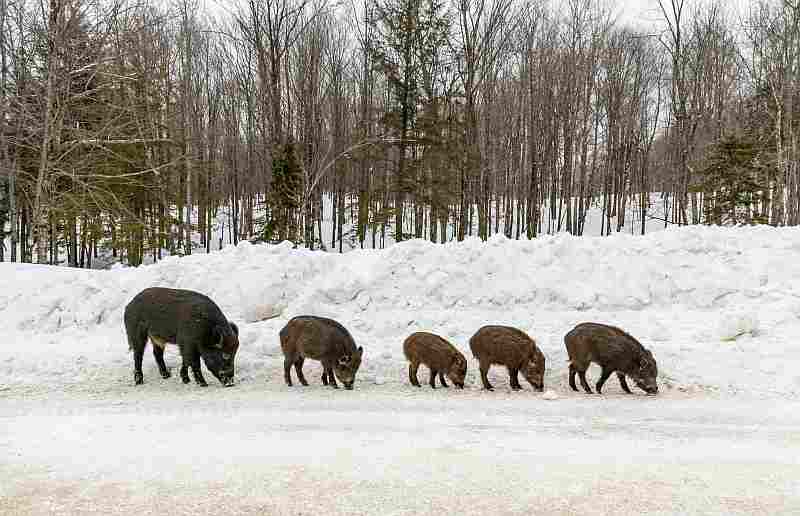You’ve probably heard the old adage, ‘eating like a pig,’ right? It’s often used to describe someone with an insatiable appetite or a lack of dietary restraint, suggesting that pigs will, quite literally, eat anything. But is that really accurate? Are pigs the indiscriminate eaters we often make them out to be?
As you ponder this, consider the vast range of items you’ve seen pigs consume in popular culture – from scraps and slop to, well, odder items. Yet, there’s much more to a pig’s dietary needs and habits than meets the eye, inviting a deeper exploration into what exactly falls on their plate.
So, do pigs eat anything? Let’s find out!
Understanding a Pig’s Dietary Needs
While you might assume that pigs will eat just about anything, their dietary needs are actually quite complex and specific. They require a balanced diet rich in protein, fiber, and carbohydrates for optimal nutrient absorption.
The Pig Digestion Process begins with the pig’s omnivorous diet being broken down in the stomach, and then passed on to the small intestine. Here, Nutrient Absorption in Pigs occurs as vitamins, minerals, and other essential nutrients are assimilated into the body.
They can’t simply consume anything; their food must contain necessary nutrients for growth, health, and reproduction. Understanding a pig’s dietary needs is essential for their well-being.
As you can see, it’s not just about filling their bellies, but also about providing what they need for a healthy life.
Common Misconceptions About Pig Diets
Despite the intricacies of a pig’s dietary needs just discussed, many misconceptions persist about what pigs can and should eat.
A common myth is that pigs can eat anything, leading to pig obesity issues. Overfeeding, especially with high-fat or high-sugar foods, can significantly harm a pig’s health.
You might also believe that pigs are inherently dirty animals that enjoy wallowing in their own waste. In fact, pigs are clean animals that only resort to such behavior due to limited space or lack of clean water.
Cultural beliefs also impact our understanding of pig diets, with some cultures feeding pigs table scraps or certain foods based on tradition, not nutritional science.
It’s crucial to dispel these misconceptions for the welfare of pigs.
What Pigs Can Eat: Healthy Options
You might be surprised to learn that a pig’s diet can and should include a variety of healthy options, ranging from fruits and vegetables to grains and even certain types of meat. Pig Meal Preparations aren’t just about filling their bellies but ensuring they receive the nutrients they need. It’s important to understand their Natural Feeding Habits and provide a balanced diet that aligns with their needs.
Here are some healthy options you can consider:
- Fruits and vegetables: Pigs love apples, pears, and root vegetables. They can be fed raw or cooked, and are a great source of vitamins.
- Grains: Corn, wheat, and barley provide carbohydrates and fiber, essential for their digestion.
- Protein: Meat and dairy products can be included in measured quantities to provide protein.
Foods Pigs Should Avoid
Just as it’s crucial to understand the nutritious foods that pigs can enjoy, it’s equally important to know which ones they need to avoid for their well-being.
A common misconception is that pigs can consume anything. However, certain foods can lead to toxic food reactions, causing severe health issues.
One of the biggest swine feeding mistakes is giving them processed human food, which often contains ingredients harmful to pigs, such as salt, sugar, and preservatives.
Chocolate, onions, and garlic are toxic to pigs and can induce vomiting, abdominal pain, or even death. Pigs also shouldn’t be fed meat or products with high fat content, which can lead to obesity.
Therefore, consider their dietary needs carefully before feeding.
Impact of Diet on Pig Health
Proper nutrition plays a pivotal role in maintaining pig health. It affects everything from their growth rate and reproductive performance to their disease resistance and overall lifespan. A balanced diet can act as the first line of defense in disease prevention and mitigate potential genetic impacts of health issues.
Consider the following points:
- The right balance of protein, carbohydrates, fats, vitamins, and minerals boosts pigs’ immune systems, making them less susceptible to diseases.
- A diet tailored to a pig’s genetic makeup can prevent inherited health issues.
- Overfeeding or underfeeding can cause a host of health problems, including obesity or malnutrition.
Frequently Asked Questions
How Does a Pig’s Diet Change as It Grows From a Piglet to a Mature Pig?
As a piglet, it’ll need high protein feeds for growth. As it matures, you’ll adjust its diet to include more fibrous foods, using specific swine feeding techniques to promote overall health and weight.
Can Pigs Eat Human Food Leftovers?
Yes, pigs can eat human food leftovers, but be mindful of the pig’s dietary restrictions. Not all human food is safe for pigs and some can negatively impact their health. Always research before feeding leftovers.
What Is the Impact of Overfeeding Pigs on Their Overall Health and Lifespan?
Ever thought about the obesity consequences for overfed pigs? It’s not pretty. Overfeeding can lead to metabolic disorders, decreasing their lifespan. It’s essential to maintain balanced feeding for optimum health.
Are There Any Specific Food Allergies That Pigs Commonly Have?
Yes, while pigs are omnivorous, they can develop allergies to certain foods. Common allergenic foods in pig nutrition include soy, corn, and wheat. It’s important to monitor their diet for any adverse reactions.
How Does the Diet of Farmed Pigs Differ From That of Wild Pigs?
You might think pigs eat anything, but it’s not so. Farmed pigs’ diets are controlled, meeting their nutritional needs. Wild pigs are foragers, eating roots, leaves, and small animals, which can vary their nutrition intake.
Conclusion
So, contrary to popular belief, pigs can’t just eat anything. Their diet needs balance and thought, just like ours. Feeding them right means a healthier, happier pig.
Remember, ‘you are what you eat’ holds true for pigs too. Avoid harmful foods and embrace the healthy options.
Because, ultimately, a pig’s diet has a huge impact on their health, and if they’re healthy, they’re more likely to lead a fulfilling life.

